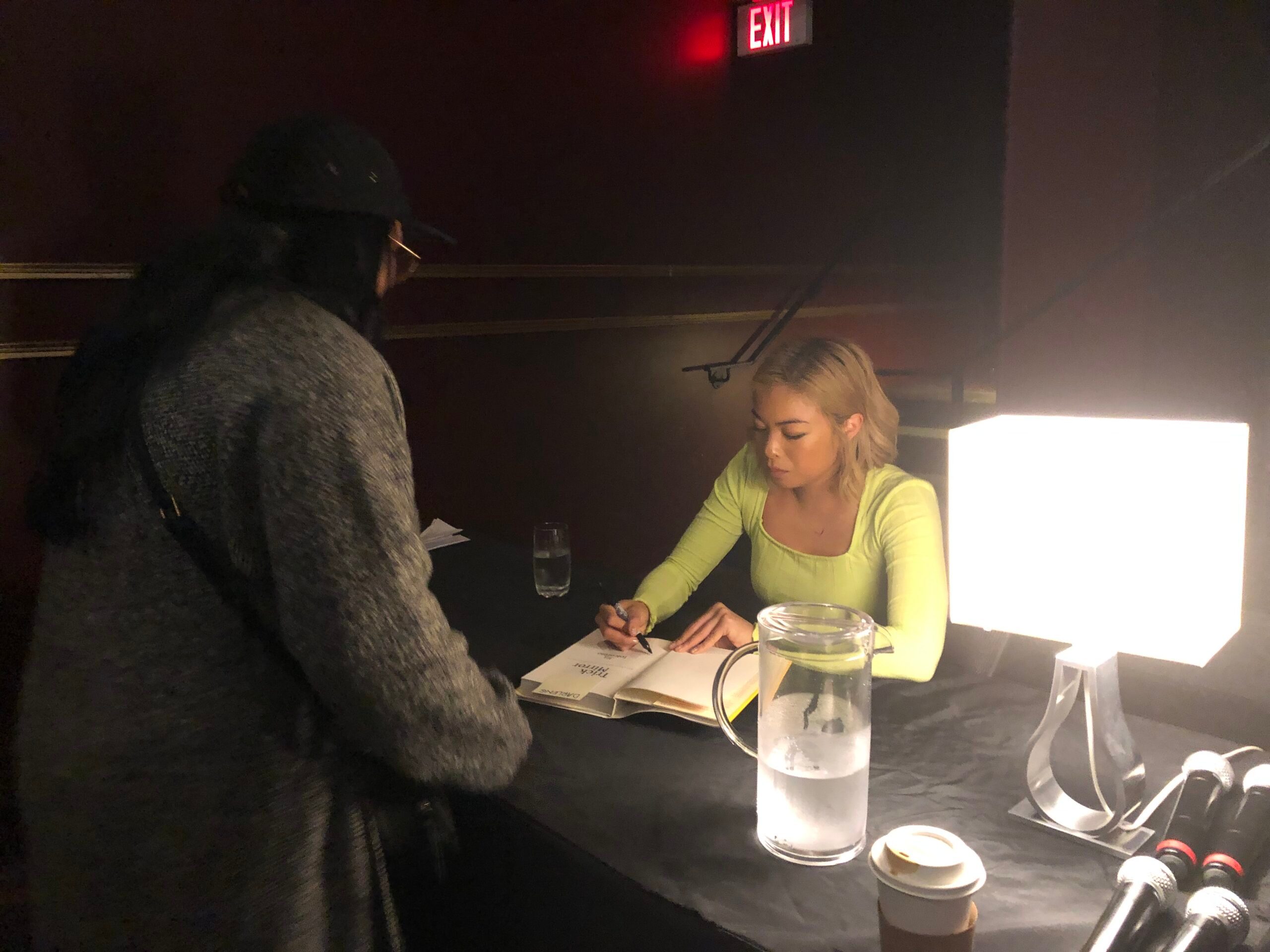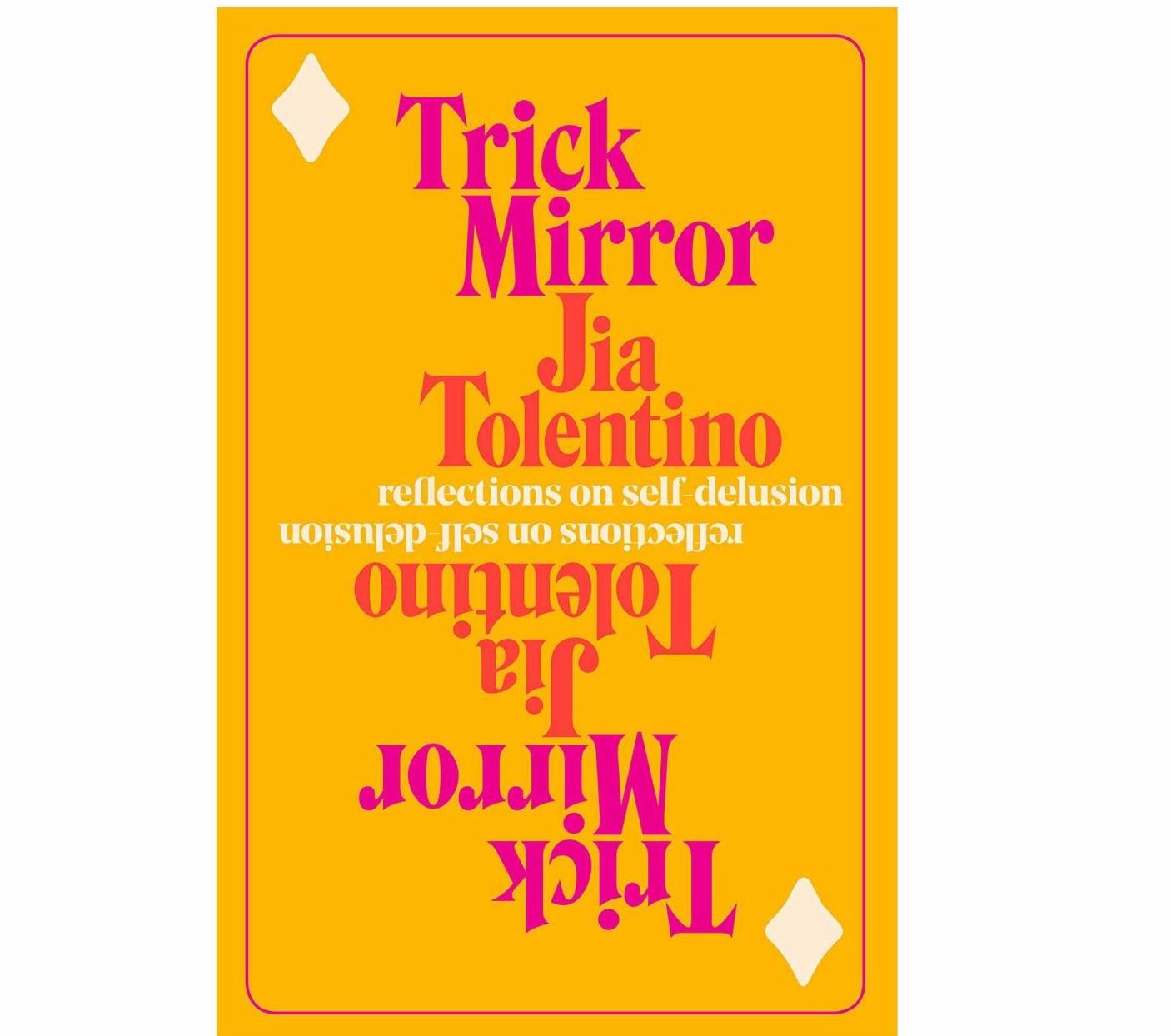SUMMARY
This is AI generated summarization, which may have errors. For context, always refer to the full article.

TORONTO, Canada – Filipino-American Jia Tolentino has been called the voice of the millennial generation and essayist of our time; her phenomenal writing has been compared to none other than Joan Didion.
As “incredibly flattering” as these plaudits are, Tolentino makes it clear she’d rather you appreciate her on her own merits.
“Obviously she’s (Didion) a better writer, but I’m a better hang, you know,” she jokingly tells a crowd of mostly millennial women who paid to watch her being interviewed about her debut essay collection, Trick Mirror: Reflections of Self-Delusion, at Hot Docs Cinema on September 28.
Tolentino describes the voice of her generation label as “a little spooky,” adding, “in this age of…generalized panopticon, you can go a little nuts if you if you think too much about how people are going to see you.” But she does imagine, she says, “that I’m writing to my smartest and finest friend, because that’s not the person that you’re at least likely to bullshit, you know.”
A staff writer for The New Yorker since 2016, Tolentino says she has been shocked at how the book has been so well-received.
“It’s wild that so many people are down for it. It’s a pretty dense book. It doesn’t have, like, takeaways, you know, as every many interviewers have reminded me,” she says. “I think the response to this book mostly reminded me that we’re connected by the things that keep us up at night.”

Trick Mirror has been on the New York Times Bestseller list and has earned praises from highly-acclaimed writers. American writer, historian and essayist Rebecca Solnit calls her “the best young essayist at work in the United States”; British novelist and essayist Zadie Smitha describes Trick Mirror as a “whip-smart, challenging book that will prompt many of us to take a long, hard look in the mirror.”
Trick Mirror is a collection of nine long-form essays on American cultural life in the Digital Age, including the monetization/optimization of self; pop feminism, scammer culture, athleisure and capitalism, rape and race, and religion.
Tolentino — who is 30 and became a professional journalist only 7 years ago — says she had initially been resistant to the idea of writing a book. Those familiar with her original, compelling think pieces for the online women’s magazine, Jezebel, where she once worked as deputy editor, suggested a “badass” book about feminism. “And I was just like, I can’t do that,” she recalls.
But then she woke up feeling utterly disoriented the morning after Donald Trump got elected in 2016.

“I was just like, what is happening? What is this world? I had been so sure, like so many people in the media that Trump was not gonna win,” she recalls. “The idea that certainty was actually misleading…really hammered me on the head, and I kept thinking about it… Is there a way to think, to try to be clear without being certain?”
Asked how the Internet has exacerbated self-delusion, Tolentino says, “one of the things that I like the least in this world is whenever a really good impulse gets appropriated by the market in a way that ends up being corrosive to your life.”
While its important for people to figure out who they are, be connected to people, and even be seen and liked, “the Internet has just taken all these impulses and monetized them as a central mechanism,” she says.
On pop feminism, Tolentino acknowledges that “I only was able to have the jobs that I had because feminism was marketable.” She also continues to benefit from it, she says, even if this mainstream, Instagram feminism is counter to the idea of feminism that she believes in.
“It’s a feminism that’s built around people being successful, prominent, beautiful, aspirationally available as possible.” The image she has of this sort of feminism, she says, is of a woman “just striding around a stage in a solid colour pantsuit, and the whole club is screaming affirmations; like everyone feels confident they can be her one day.”
Real feminism on the other hand, she says, “is labor organizing, and care for all.. It’s built on the collective well-being rather than individual success.”
Tolentino also rails against a feminism that offers a blanket defense of all women, especially powerful women. She has been at the receiving end of comments that she sums up as, “How dare you tear down someone that has achieved what we know we all want which is wealth, and power, and prominence?”
As to whether she has ever thought of deleting social media together, Tolentino quips, “Yeah. I mean, I think about that every time I’m in nature for 30 or more seconds.”
Kidding aside, she says, she likes being in the digital world because it’s “a continual exercise of, can you be yourself? Can you be human? Can you have fun? There’s something about it that’s internally worthwhile.”
She is also all too aware, she says, that for her and for other people, being on social media is tied to her ability to make money. “I don’t know what to do with the fact that I myself continue to benefit from all this: that my career is possible in large part because of the way the Internet collapses identity, opinion and action,” she writes in the book. – Rappler.com
Add a comment
How does this make you feel?
There are no comments yet. Add your comment to start the conversation.